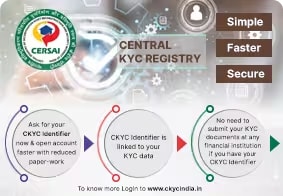Enjoy Zero Charges on All Commonly Used Savings Account Services
- About Us
- MD & CEO letter about the bank
- MD & CEO
- Our History
- Letter to Shareholders on the 1st Annual Report after Merger
- Letter to Shareholders on the 2nd Annual Report after Merger
- Letter to Shareholders on the 3rd Annual Report after Merger
- Letter to Shareholders on the 4th Annual Report after Merger
- Board of Directors
- Awards & Accolades
- News Room
- Investors
- Careers
- ESG
-
Customer care hotlineCall 1800 10 888
-
As per amendment in the Income Tax Rules, PAN or Aadhaar are to be mandatorily quoted for cash deposit or withdrawal aggregating to Rupees twenty lakhs or more in a FY. Please update your PAN or Aadhaar. Kindly reach out to the Bank’s contact center on 1800 10 888 or visit the nearest IDFC FIRST Bank branch for further queries.
-
-
FinFIRST Blogs
Visionary industrialist Henry Ford once said that a business that makes nothing but money is a poor business. It wasn’t until six years after his death that the term Corporate Social Responsibility (CSR) was first used by economist Howard Bowen. It has been nearly seventy years since Bowen introduced the term into corporate parlance, yet the simplicity of Ford’s words still rings true. Modern businesses are no longer judged solely based on their financial performance or their product quality. The common people and the stakeholders scrutinize their contribution and impact on the society around them.
A successful CSR strategy is not just about pushing the envelope in terms of good intentions and executing it. The general direction of these strategies should align with the business's identity and be relatable for the stakeholders. Some of the answers you ought to seek from your CSR strategy may include:
1. How aligned is the CSR strategy with business competencies?
A successful CSR strategy lies at the intersection of commercial and social benefits. Pursuing a CSR venture outside the business's core competencies can lead to faulty execution and underwhelming response. When Coca-Cola promotes its Water Security Strategy, it also talks about regenerating the water use in its bottling operations. Besides, water is admittedly the first ingredient in most Coca-Cola beverages. Similarly, a textile company would be better equipped to run a CSR campaign for the benefit of rural weavers. Levi’s Water<Less campaign has significantly reduced the use of water in the manufacturing of denim, amounting to billions of litre of water. Framing your CSR goals around the areas where your business can actively perform will make the initiative more fruitful.
READ MORE
2. Would the CSR initiative resonate with the customers?
A CSR strategy can go a long way in enhancing the reputation of a company. But for that to happen, such initiatives should draw the consumers' attention and create a brand recall. Consumers have a preference for companies with whom they share common ethics and social causes. A 2017 study showed that 87% of consumers go for companies that echo their social issues, while 78% of consumers avoid companies who have a counterview on a topic close to their heart. Therefore, an organisation working on its CSR strategy should understand customer behaviour and preferences. For instance, if your customers are primarily from the millennial generation, you have a very socially conscious generation on your hands. Your CSR initiative can be more engaging with your customer, which could be in the form of volunteering and donation drives. Higher customer engagement can automatically result in higher brand visibility and customer loyalty.
3. Can CSR be one of your verticals?
An organisation should build its CSR strategy in a way that resembles its business verticals, albeit without the profit motive. In other words, the CSR strategy should be integrated into your business so that you can execute it the way you execute your operations. Successful organisations have well-drilled processes, and replicating them even in CSR initiatives can make them successful. You will also be able to model measurable ROI for your CSR initiatives and justify the initiative to your top leadership and investors. Apart from the benefits to the community, customer acquisition, brand awareness, and improved customer perception can be some of the acceptable returns from your CSR initiatives.
4. Will it engage the employees?
Apart from good pay and work-life balance, employees appreciate the opportunity to make an impact on social and environmental issues. If your CSR initiative can accommodate the participation of employees, its benefit is at least two-folds. While on the one hand, your employees become the torchbearers who ensure the success of the strategy; they can also inspire others to associate with a cause that they feel for on the other hand. With greater employee engagement, the organisation's attrition rate improves as the company can retain more employees and attract top resources to the workforce, apart from the successful execution of the CSR initiative.
5. Does the strategy have a road map?
Your CSR strategy should have measurable objectives with a defined path to achieve them. You may have specific goals like building sustainable partnerships or innovation through your CSR efforts. A CSR activity promoting traditional artisanal communities can open up a new sourcing partnership for a home décor company while ensuring sustainability. Similarly, an oil and gas company pursuing a CSR campaign for cleaner fuel can end up driving innovation in its product line.
Many companies have enhanced their brand value and reputation with their CSR activities. By developing astute CSR strategies, these companies have earned customer loyalty, engaged more with their target audience, and also achieved better employee engagement in their workforce. More importantly, socially responsible companies have given back to their local communities and the world through CSR efforts. After all, Corporate Social Responsibility is all about able enterprises trying to uplift the people and communities around them.
Disclaimer
The contents of this article/infographic/picture/video are meant solely for information purposes. The contents are generic in nature and for informational purposes only. It is not a substitute for specific advice in your own circumstances. The information is subject to updation, completion, revision, verification and amendment and the same may change materially. The information is not intended for distribution or use by any person in any jurisdiction where such distribution or use would be contrary to law or regulation or would subject IDFC FIRST Bank or its affiliates to any licensing or registration requirements. IDFC FIRST Bank shall not be responsible for any direct/indirect loss or liability incurred by the reader for taking any financial decisions based on the contents and information mentioned. Please consult your financial advisor before making any financial decision.
The features, benefits and offers mentioned in the article are applicable as on the day of publication of this blog and is subject to change without notice. The contents herein are also subject to other product specific terms and conditions and any third party terms and conditions, as applicable. Please refer our website www.idfcfirstbank.com for latest updates.


 What's special about us
What's special about us




















